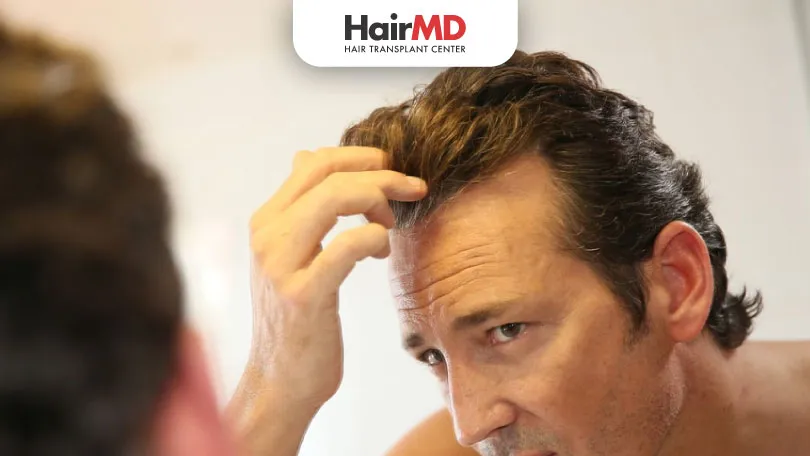4th Nov, 2023

What’s covered in the article?
- A Balanced Diet and Proper Lifestyle
- Minoxidil
- Finasteride
- Hair Therapies
- Hair Transplant
- Essential Oil Massage
- Conclusion
A Balanced Diet and Proper Lifestyle
The best piece of advice that the doctor will give you is to consume a properly balanced diet containing all the essential nutrients. Absorbing zinc, iron, protein and other nutrients will strengthen the hair follicle and promote hair growth.
Moreover, a lifestyle including regular exercise, a nutritious diet, a proper sleep schedule and stress management is a sure shot way to keep hormonal imbalances at bay. All these lifestyle factors can be responsible for triggering patterned baldness, especially in early ages. Thus a hormonal balance due to decreased levels of cortisol hormone and increased levels of endorphins can minimise the action of DHT and prolong the beginning of patterned baldness.
Minoxidil
Minoxidil is a topical drug that is available in the form of lotion, foams or gels.. When applied to the scalp the drug increases the flow of blood to hair roots. The increased blood flow promotes regrowth and helps to recover the lost hair.
Finasteride
Finasteride, is a prescription drug that works against the action of dihydrotestosterone or DHT hormone. The drug prevents the binding of the hormone to the hair follicle halting the miniaturisation process and hair loss. . Once the hair follicle recovers, new hair starts to grow out, which is stronger and thicker.
Hair Therapies
PRP, stem cell and low-light laser therapies are some of the most recommended solutions for pattern hair loss. Laser light at a certain wavelength can stimulate hair regrowth and is best suited for hair loss in males.
Hair Transplant
Hair transplant treatments are also one of the best-suited treatments for progressed pattern hair loss. The hair strands are taken out from those follicles which are resistant towards DHT and are transferred to those which are dependent on it.
Essential Oil Massage
Coconut oil, jojoba oil, rosemary oil, lavender oil and cedarwood oil are among those essential oils that, when massaged on the hair, boosts blood circulation. These hair oils can make the hair follicle stronger and stimulate hair growth
Around 50% of males suffer from male pattern hair loss. It can arise in any phase of life; the most common signs are receding hairline and bald patches. Female pattern hair loss is seen in females, noticed as widening of the hair partition and progressive loss of density on top of the scalp. As the hormone attacks the hair follicles, hair regrowth comes to a pause and the process of balding starts.
Do You Know?
Nearly 250 Patients Visit HairMD
Everyday For Various Hair Concerns?
(Your journey to healthier and fuller hair starts here!)
Meet Our Dermatologists
Conclusion
Further Reading
Top Kitchen Ingredients to Boost Hair Growth
Discover the best kitchen ingredients for hair growth! Use coconut oil, onion juice, aloe vera & more to nourish your hair naturally and reduce hair fall.
How to Treat Alopecia Areata at Home: Natural Solutions for Hair Growth
Explore home remedies for alopecia areata to promote hair regrowth and boost confidence from home.
Redensyl vs. Minoxidil: Which is the Better For Hair Growth?
Discover the differences between Redensyl and Minoxidil for hair growth. Learn about their effectiveness, side effects, and which treatment might be better for you.
Biotin-Rich Foods for Natural Hair Growth
Know the best foods rich in biotin to help your hair to grow naturally stronger and healthier by experts from HairMD, Pune
Have thoughts? Please let us know
We are committed not only to treating you, but also educating you.











